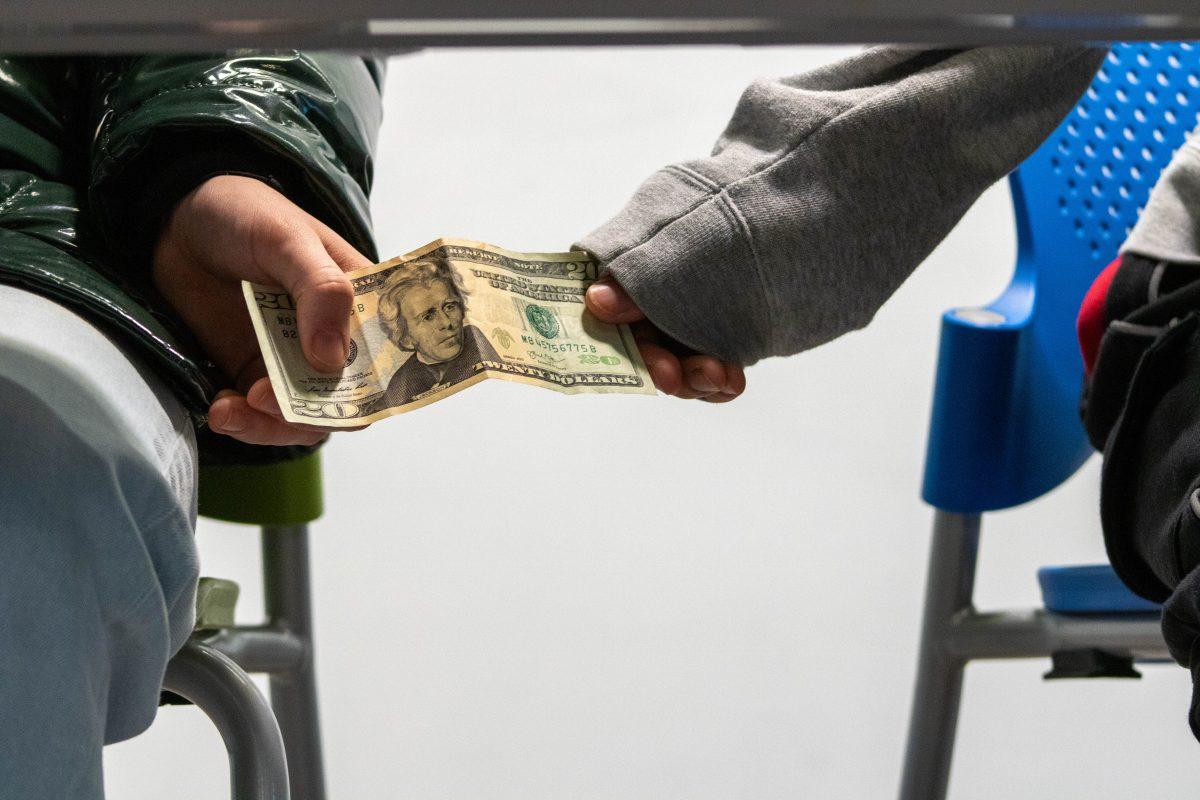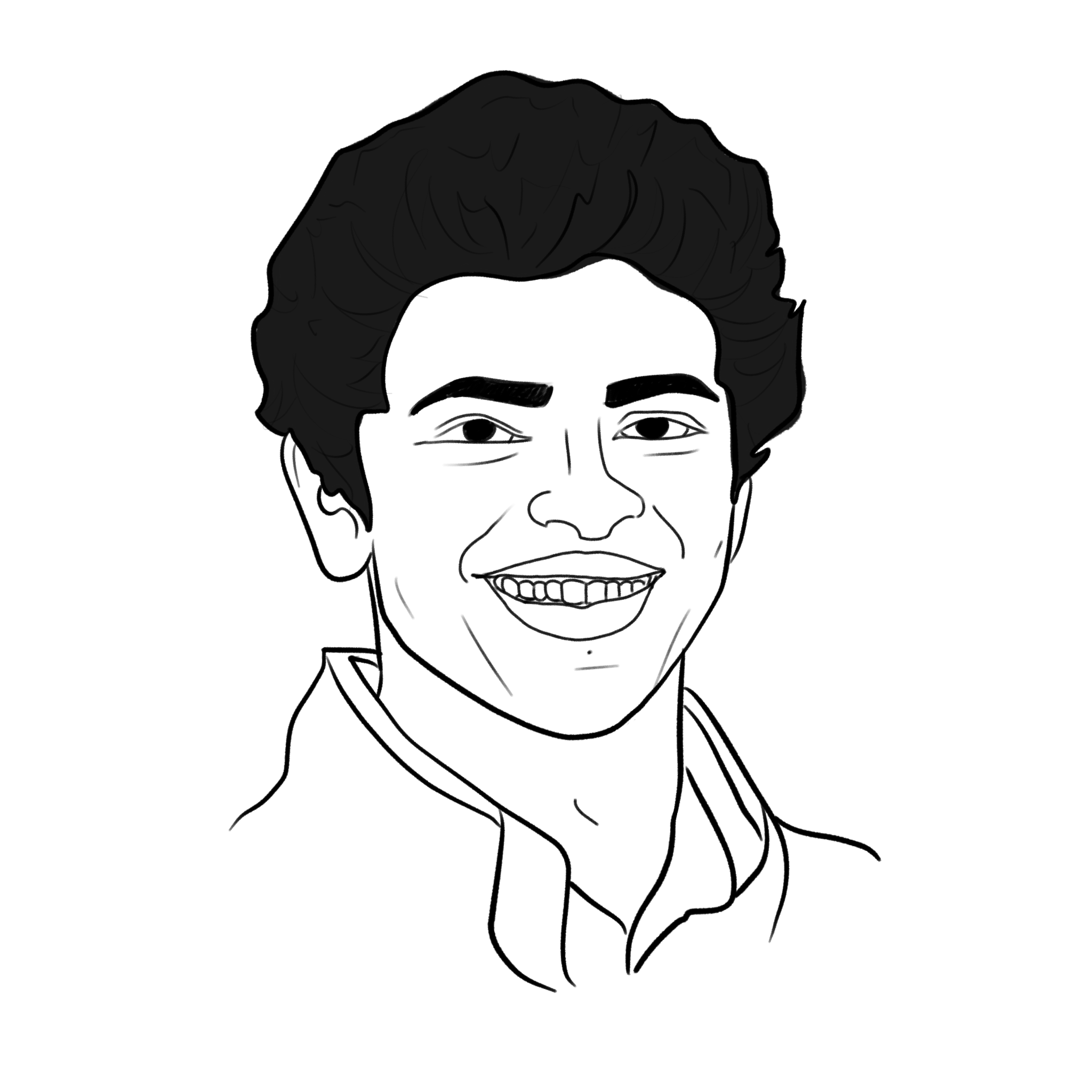
For many students, Nobles is about test scores, extracurriculars, and colleges. However, for a growing number, high school is about something else: learning how to make money and set themselves up for the future. Investing at Nobles is a passion for many students, who occupy their free time with rapid, tumultuous trading and analysis. In doing so, investing serves as a way to gain real-world experience in finance, understand the risks and rewards of the market, and even make money before students graduate.
At Nobles, the interest in investing stems from parental influence. These students initially saw their parents’ involvement in the stock market, typically as a result of their professions. “My dad got me into it [investing]. I would always hear him talking about it, and it was interesting to see how dynamic and current it was,” Peter Sacerdote (Class I) said. Lou Munger (Class I) began investing in a similar way. “It’s what my dad does for work. I was always sort of around it. I was always thinking about it,” Munger said. However, other students also began investing during the COVID-19 pandemic. The lockdown gave these students ample free time to begin researching the stock market alongside their peers. “I think a lot of [students started investing] during COVID. It was trendy at the time,” Teddy MacAusland (Class I) said.
Upon beginning their investing career, many of these students embraced a long-term strategy. By looking for companies that are projected to grow over the next 15-20 years, these students can build a portfolio that will continue to improve even as they graduate college and beyond. This means that these students do not day trade as often, as that aspect of investing is heavily fluctuating and involves daily monitoring. “I mostly focus on long-term stuff. I don’t really day trade that much,” Jack Babka (Class II) said. In doing so, Babka is able to increase his savings over time without constantly worrying about whether he is making a significant profit or return on investment (ROI). Jonas Zatlyn-Weiner (Class I) adds that there is another benefit to long-term investment over day trading. “You are able to learn about research-related companies that are doing cutting-edge things and companies that are growing,” Zatlyn-Weiner said. Therefore, as high school students, many young investors at Nobles use the stock market as a means to set themselves up for the future and stay informed about current events.
“This past summer, Lou Munger and I had a lot of time on our hands, and we wanted to trade a little bit. We each put in $1,000 and day traded. We got it up to $70,000 by the end of the summer.”
At such a rigorous institution like Nobles, students are constantly inundated with schoolwork and a range of extracurriculars. Naturally, this means that investing seems like more of a distraction from the various other activities that require these students’ attention. However, to these students, their long-term investment strategies once again serve to benefit them. “I’ll be somewhat hands-off and only really check my portfolio. I won’t be making many trades during the day,” MacAusland said. Long-term portfolios also allow these students to improve their time management skills and make better use of their free time. “I usually would focus on [investing] more in the summer and during my free time if I was bored,” Babka said.
With volatile tasks like investing and day trading inherently come memorable stories. Specifically, many students interested in the stock market often find themselves looking into stocks and options based on their own perspectives and daily lives. “One time, I invested in Heineken based on impulse. I like their commercials, so I wanted to invest in them. I did not even know what the company was about. It did not do too well,” Babka said. MacAusland shared a similar story regarding his personal experience with investing. “This past summer, Lou Munger and I had a lot of time on our hands, and we wanted to trade a little bit. We each put in $1,000 and day traded. We got it up to $70,000 by the end of the summer. I think it was a good idea,” MacAusland said. Babka and MacAusland’s experiences illuminate the nature and volatility of the market, a key investing lesson that they continue to carry forward as they build their portfolios.
Ultimately, investing at Nobles and its growth among the student body mirrors a nationwide trend. As more individuals begin turning to the stock market as a supplemental means to make money, many at Nobles likewise do the same. However, investing at Nobles also seems to be reserved for a single demographic of people: students who can afford to risk $1,000 and have the connections and resources for financial advice. Many, if not most, students at Nobles simply do not have these same capabilities. Thus, while the experiences of student investors can serve to elucidate valuable lessons about the stock market, they also raise the question of whether investing and day trading at Nobles are passions and interests that everyone can pursue.
